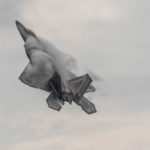
China recently landed two of its most advanced long-range H-6 bombers on Woody Island in the Paracel Islands, a highly contested territory in the South China Sea.
This move marks the first time since 2020 that these bombers have touched down there. Satellite images captured on May 19 show the jets parked on the island’s runway, signaling China’s growing military presence in the region.

The H-6 bomber is an upgraded version of a Cold War-era Soviet plane. Despite its old design, it packs modern weaponry, including cruise missiles and potentially nuclear-tipped missiles.
These bombers are usually kept safely on mainland bases, but flying them to Woody Island shows China’s readiness to use force if needed. This isn’t just a show-off—it’s a strategic play.
Why should you care? Because this is the kind of power move that could escalate regional conflicts or challenge U.S. military forces stationed nearby in Japan and Guam.
The South China Sea is a busy shipping lane and a critical route for global trade. Any disruption here could affect goods and prices worldwide. So when China lands bombers on disputed islands, the stakes are higher than just local politics.
Also Read China’s Yuan Edges Lower as Dollar Strengthens and Central Bank Eases Fixing
Interestingly, some experts believe China doesn’t plan to keep the bombers on Woody Island long-term. Instead, the planes might rotate through as a way to test defenses and protect Chinese bases.
This keeps rivals guessing and under pressure, much like a chess player moving pieces to control the board without committing all at once.
The timing is also key. This deployment comes just before the region’s biggest defense forum, the Shangri-La Dialogue in Singapore, where world leaders including France’s President Emmanuel Macron and U.S. Defense Secretary Pete Hegseth will discuss security issues. A British aircraft carrier is also set for a rare visit to the South China Sea next month, raising the stakes further.
China claims nearly all of the South China Sea, a claim dismissed by a 2016 international tribunal. Still, Beijing continues to assert control through military and infrastructure buildup on islands like Woody Island.
Vietnam and the Philippines dispute this, but Beijing remains unmoved.
This episode shows a delicate but tense dance of power in Asia. China is sending a clear signal: it is ready to protect what it calls its territory, with advanced bombers to back up the talk. For those watching from afar, this is a reminder that peace in this busy waterway isn’t guaranteed.
Also Read European Firms Cut China Investments as Economic Pressures Mount












